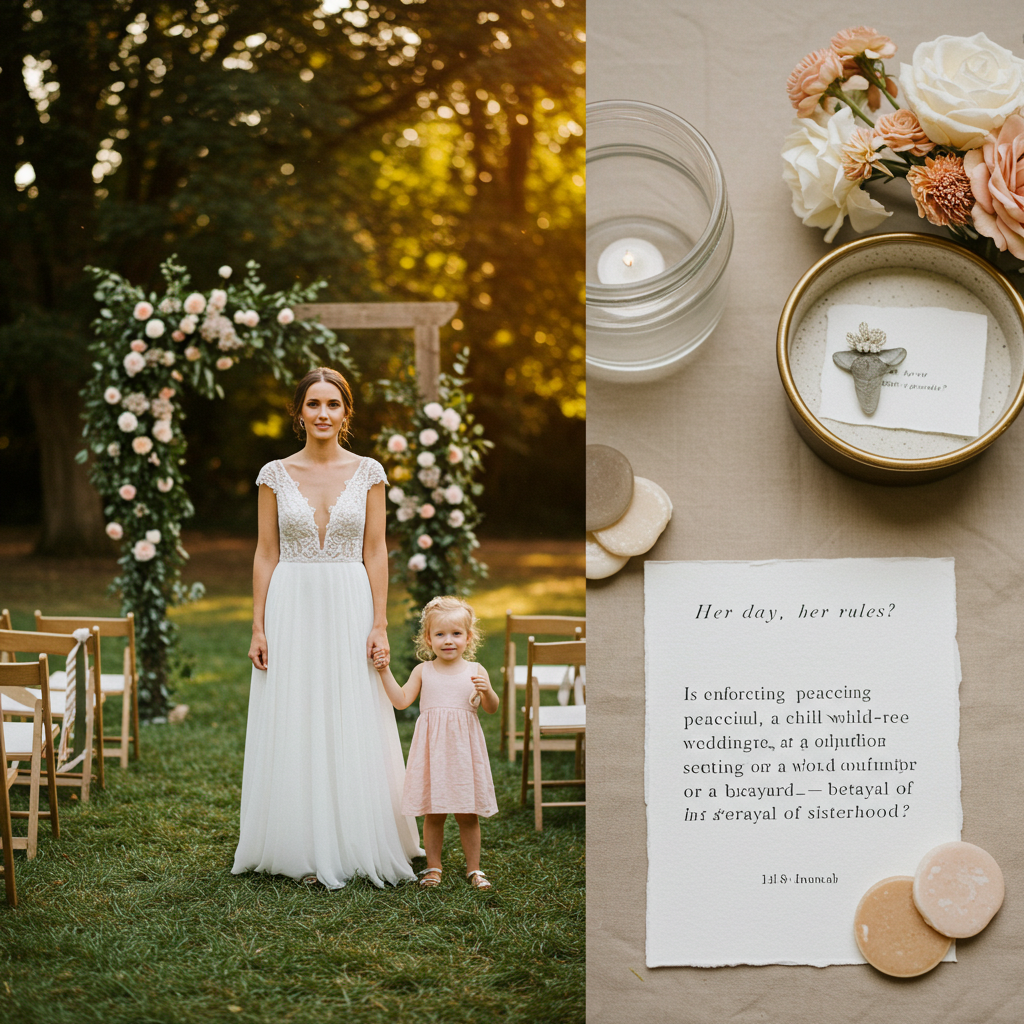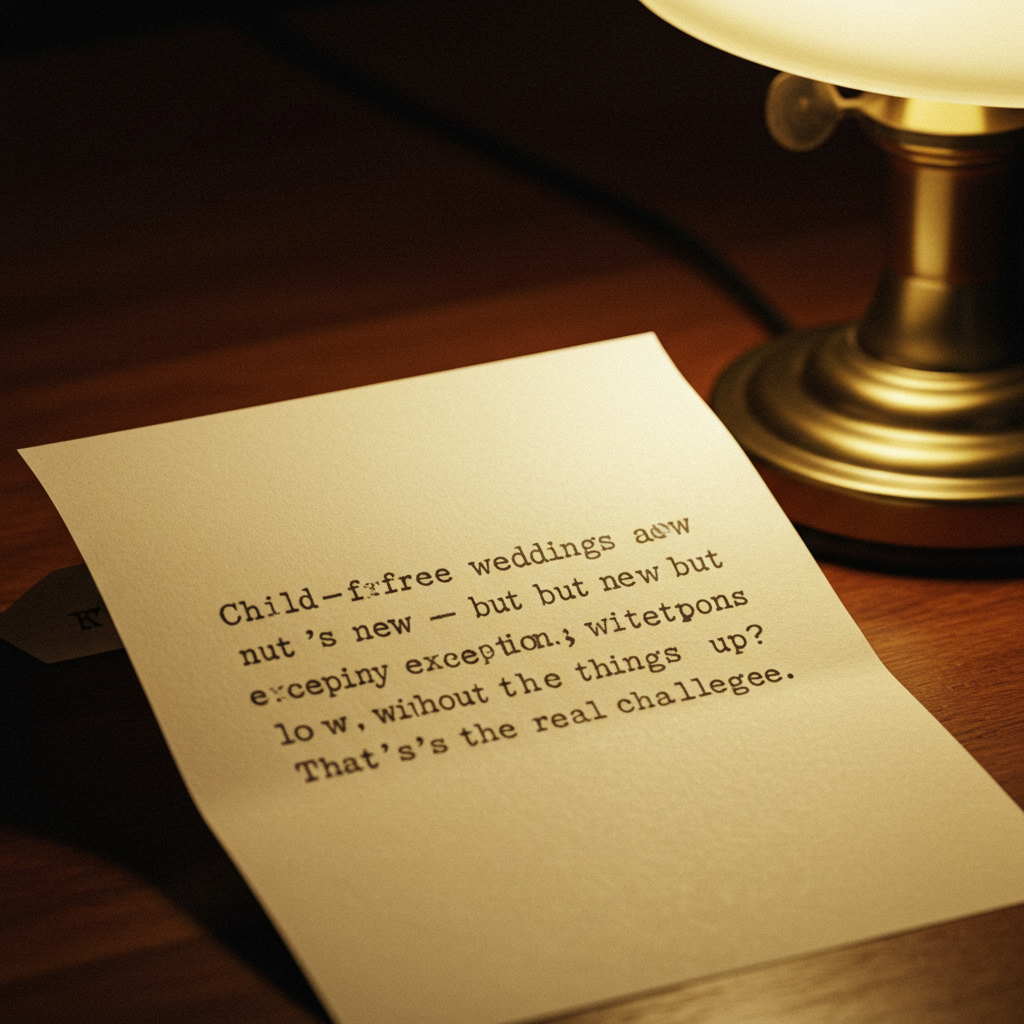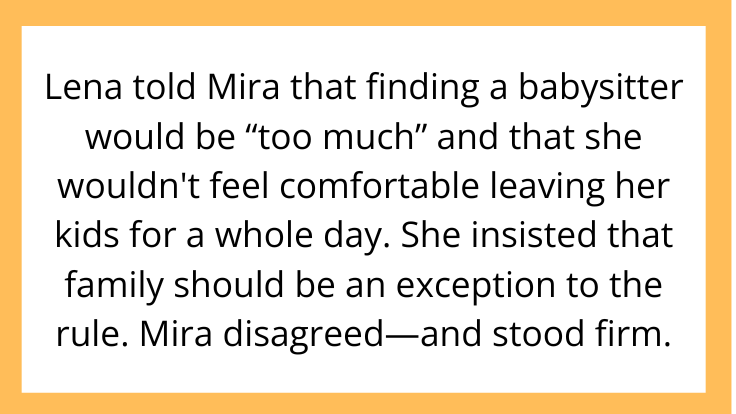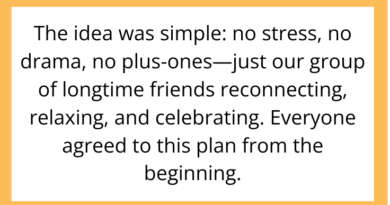AITAH for Not Wanting My Sister to Bring Her Kids to My Child-Free Wedding?
Weddings are often a mix of celebration, stress, and high expectations—but nothing quite ignites family drama like enforcing a “child-free” rule. In today’s AITAH scenario, a bride finds herself caught between the vision she’s dreamed of for years and her sister’s maternal instincts. Is she being a reasonable host, or just plain heartless?
Let’s unpack the drama.
The Setup: A Wedding, a Rule, and a Rift

A 31-year-old bride, whom we’ll call Mira, recently took to Reddit’s r/AITAH to ask if she was wrong for banning children from her upcoming wedding. It’s a common enough request—plenty of couples opt for a child-free ceremony and reception to maintain a certain atmosphere.
But the issue? Mira’s older sister, Lena, has two young kids under the age of five and wasn’t happy about the decision.
Lena told Mira that finding a babysitter would be “too much” and that she wouldn’t feel comfortable leaving her kids for a whole day. She insisted that family should be an exception to the rule. Mira disagreed—and stood firm.
The Bride’s Perspective: Boundaries, Not Betrayal

Mira’s argument centered around a clear boundary. She and her fiancé had envisioned a peaceful, elegant event—something more formal, adult-oriented, and, frankly, quieter.
They had also arranged for alcohol to be served freely and didn’t want to stress over tantrums during the ceremony or crying during speeches.
In Mira’s words: “It’s our day. We’re paying for it ourselves. We want to enjoy it without worrying about little ones running around.”
She offered to help cover childcare costs for Lena or even suggested trusted local babysitters, but her sister refused. Now, Lena is threatening not to attend.
The Sister’s View: Exclusion and Disappointment

From Lena’s side, the hurt ran deeper than just logistics. She saw the child-free rule not just as a wedding policy—but as a rejection of her and her identity as a mother.
She argued that family should come first, and that making an exception for her children wouldn’t ruin the bride’s day, but rather honor the bond they shared.
“She’s my only sister,” Lena allegedly told her. “It’s insulting to be treated like just another guest.”
Lena even hinted that if her kids weren’t welcome, then she wasn’t either.
What Reddit Had to Say

The AITAH community didn’t hold back. The majority opinion sided with Mira.
One top comment read:
“AITAH? Absolutely not. Child-free means child-free. You’re not excluding her kids out of malice—you’re planning the kind of event that makes you happy.”
Others pointed out that attending a wedding is voluntary, and no one is entitled to dictate the terms of someone else’s celebration.
However, a few did express sympathy for Lena’s position, saying:
“If your only sister isn’t at your wedding, will it still feel complete? You’re not wrong, but think about what you’re willing to risk for the sake of a rule.”
The Bigger Picture: Setting Wedding Boundaries Without Burning Bridges

Why Couples Choose Child-Free Weddings
There are many valid reasons couples decide to make their weddings child-free:
-
Venue restrictions or limited space
-
Formal setting or schedule
-
Alcohol-heavy receptions
-
Financial limitations
-
Simply wanting a different vibe
It’s not about disliking kids—it’s about designing an experience that suits the couple’s vision.
Navigating Family Exceptions
But as this AITAH story shows, applying rules to family can cause emotional fallout. Exceptions can feel like favoritism, but holding firm can feel cold.
The key lies in communication and empathy. Explain the why, offer alternatives, and most importantly, avoid ultimatums that force family to choose sides.
So, AITAH?

Verdict: Most readers say No, NTA (Not The A****)**.
Mira communicated clearly, offered childcare solutions, and enforced a boundary for a once-in-a-lifetime event. Her sister has every right to feel disappointed—but that doesn’t make the bride wrong.
Still, relationships are often more important than being “right.” If there’s space for compassion without compromising the event, it may be worth exploring.



